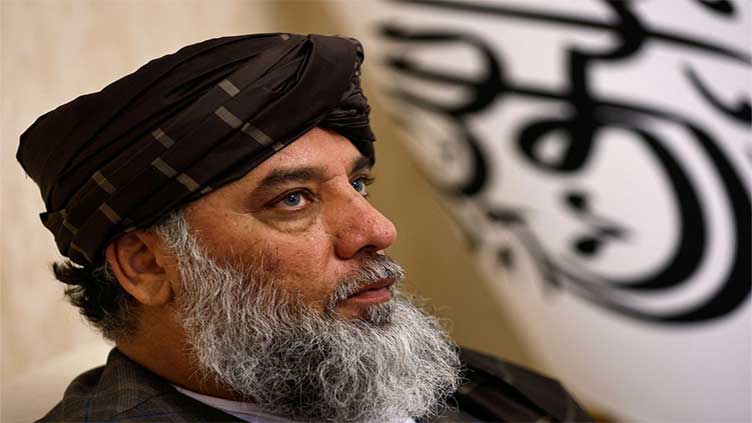Most UN Security Council members demand Taliban rescind decrees seriously oppressing women and girls

World
Most UN Security Council members demand Taliban rescind decrees seriously oppressing women and girls
UNITED NATIONS (AP) — More than two-thirds of the U.N. Security Council’s members demanded Monday that the Taliban rescind all policies and decrees oppressing and discriminating against women and girls, including banning girls education above the sixth grade and women’s right to work and move freely.
A statement by 11 of the 15 council members condemned the Taliban’s repression of women and girls since they took power in August 2021, and again insisted on their equal participation in public, political, economic, cultural and social life -- especially at all decision-making levels seeking to advance international engagement with Afghanistan’s de facto rulers.
Guyana’s U.N. Ambassador Carolyn Rodrigues-Birkett read the statement, surrounding by ambassadors of the 10 other countries, before a closed council meeting on U.N. Secretary-General Antonio Guterres’ conference with more than 25 envoys to Afghanistan on Feb. 18-19 in Qatar’s capital, Doha.
Afghan civil society representatives, including women, participated in the Doha meeting, which the council members welcomed. The Taliban refused to attend, its Foreign Ministry saying in a statement that its participation would be “beneficial” only if it was the sole and official representative for the country at the talks.
While the Taliban did not attend the meetings, U.N. political chief Rosemary DiCarlo did meet with Taliban officials based in Doha, U.N. spokesman Stephane Dujarric said. DiCarlo also briefed council members at Monday’s closed meeting.
The Taliban have not been recognized by any country, and the U.N. envoy for Afghanistan last year warned the de facto rulers that international recognition as the country’s legitimate government will remain “nearly impossible” unless they lift the restrictions on women.
The 11 council nations supporting the statement -- Ecuador, France, Guyana, Japan, Malta, Sierra Leone, Slovenia, South Korea, Switzerland, United Kingdom and United States – underscored that there can only be sustainable peace in Afghanistan if its political process is inclusive and the human rights of all Afghans are respected including women and girls.
Four Security Council nations didn’t sign on to the statement – Russia, China, Mozambique and Algeria.


